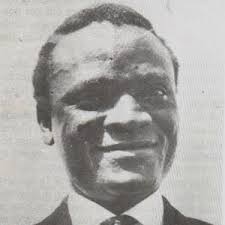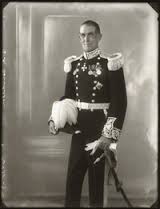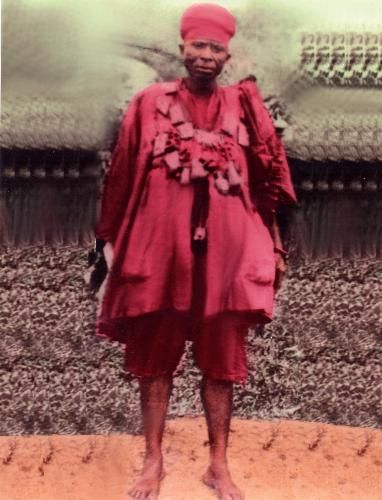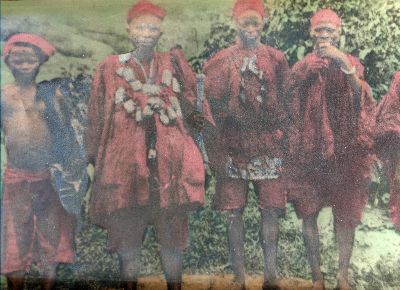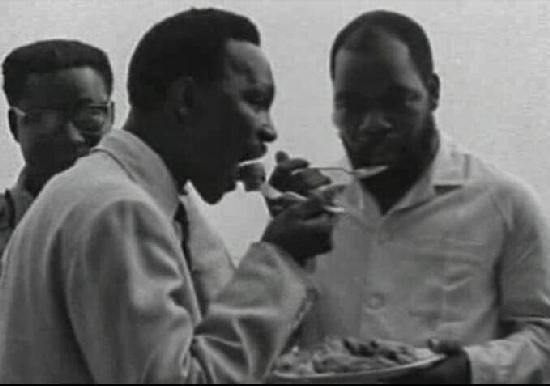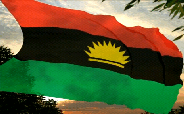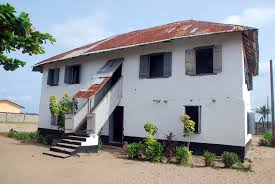 The foundation of the ancient historical laden was laid by the rev. Henry Townsend of C.M.S (Church Missionary Society) on the Marina waterfront in Badagry, Lagos, Nigeria in the year 1842, and was later built by other missionaries in 1845. The building served as vicarage for Saint Thomas Anglican Church and was later used by Samuel Ajayi Crowther, the first African C.M.S bishop that translated the Holy Bible from English to Continue reading Nigeria's First Storey Building
The foundation of the ancient historical laden was laid by the rev. Henry Townsend of C.M.S (Church Missionary Society) on the Marina waterfront in Badagry, Lagos, Nigeria in the year 1842, and was later built by other missionaries in 1845. The building served as vicarage for Saint Thomas Anglican Church and was later used by Samuel Ajayi Crowther, the first African C.M.S bishop that translated the Holy Bible from English to Continue reading Nigeria's First Storey Building
Monthly Archives: June 2015
Nigeria’s First Storey Building
 The foundation of the ancient historical laden was laid by the rev. Henry Townsend of C.M.S (Church Missionary Society) on the Marina waterfront in Badagry, Lagos, Nigeria in the year 1842, and was later built by other missionaries in 1845. The building served as vicarage for Saint Thomas Anglican Church and was later used by Samuel Ajayi Crowther, the first African C.M.S bishop that translated the Holy Bible from English to Continue reading Nigeria’s First Storey Building
The foundation of the ancient historical laden was laid by the rev. Henry Townsend of C.M.S (Church Missionary Society) on the Marina waterfront in Badagry, Lagos, Nigeria in the year 1842, and was later built by other missionaries in 1845. The building served as vicarage for Saint Thomas Anglican Church and was later used by Samuel Ajayi Crowther, the first African C.M.S bishop that translated the Holy Bible from English to Continue reading Nigeria’s First Storey Building
NNAMDI AZIKIWE
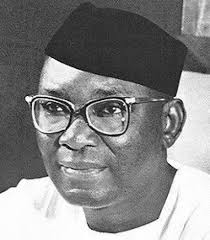
Chief Benjamin Nnamdi Azikwe (November 16, 1904- May 11, 1996) usually referred to as Nnamdi Azikwe was one of the propelling figures of Nigerian Nationalism. He was the head of Nigeria from 1963 to 1966. He was the second and last Governor- General from 1960 to 1963 and the first president of Nigeria (1963 to 1966). He served Continue reading NNAMDI AZIKIWE
Chinua Achebe
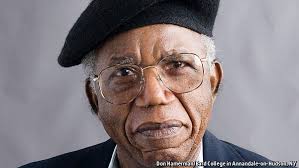
Albert Chinualumogu Achebe born on November 16 1930, was a Nigerian novelist, critic, poet, and professor. His first novel “Things Fall Apart” (1958) was considered as his magnum opus, and the most widely read book in modern African literature. He was raised by his parents in the Igbo town of Ogodi, southeastern Nigeria. Achebe excelled at school and Continue reading Chinua Achebe
Fela Anikulapo Kuti
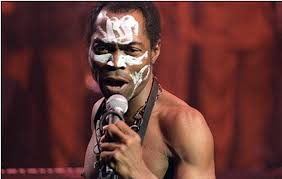
Olufela Olusegun Oludotun Ransome- Kuti also known as Fela Anikulapo Kuti was born on the 15th of October 1938 in Abeokuta, Ogun state. He was a multi- instrumentalist, composer, musician, pioneer to the Afro beat genre, human right activist, and a strong political Maverick. He was born into an upper-middle class family of the Kutis. His mother, Mrs Funmilayo Ransome Kuti, was a feminist activist in the anti- colonial movement, and his father, Rev. Isreal Oludotun Ransome- Kuti was the first president of the Nigerian Union Continue reading Fela Anikulapo Kuti
Obafemi Awolowo
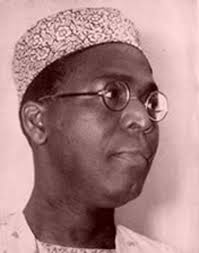 Chief Obafami Jeremiah Oyeniyi Awolowo born in March 1909 to Chief David Sopolu Awolowo and his wife Mary Efunyela Awolowo, was a Nigerian nationalist, statesman and a political writer who influenced Nigerian politics positively. As a Yoruba and a native of Ikene in Ogun state, Continue reading Obafemi Awolowo
Chief Obafami Jeremiah Oyeniyi Awolowo born in March 1909 to Chief David Sopolu Awolowo and his wife Mary Efunyela Awolowo, was a Nigerian nationalist, statesman and a political writer who influenced Nigerian politics positively. As a Yoruba and a native of Ikene in Ogun state, Continue reading Obafemi Awolowo
Teslim Balogun
Teslim Olawale Balogun, born in 1927 and died on the 30th of July, 1972, was a Nigerian footballer and coach. Teslim Balogun played at both professional and international levels as a striker, before he later became Africa’s first qualified professional football coach. Continue reading Teslim Balogun
History of Nigerian Federalism
The history of Federalism in Nigeria can be traced to the division of the country into three provinces (Northern Province, Western Province and Eastern Province) by Governor Bernard Bourdillion in 1939. Governor Bernard Bourdillion (1935 – 1943) recommended the replacement of the provinces by regions which Arthur Richard’s Constitution later implemented in 1946. It was the idea of the Richard’s constitution that brought in a Federal structure but which it didn’t accomplish to the end. However, in 1953, Governor Macpherson’s constitution improved on that of Richard’s by creating House of Rep. with powers to make law for the country and Regional Houses of Assembly to make law for the regions. Later, in 1954, the Lyttleton constitution came in with a Federal system of government for the country. This was as a result of the constitutional conference that was held in London in 1953 (1953 London Constitutional Conference) where it was decided that Nigeria should become a Federal State.
Federalism is a system of government whereby power is constitutionally shared between the central government and other component units e.g. State/region and local government, but in 1954 there were only the central and regional government in Nigeria. Their powers and functions were shared to them by the constitution. Exclusive legislative functions were meant for the central government while concurrent legislative functions were meant for both the central and regional government and residual legislative functions were meant for the regions.
Here are some reasons why Federalism was introduced into Nigeria.
* Cultural diversity
* Fear of domination by the minorities
* The size of the country
* Geographical factor
* Bringing government nearer to the
people
*British colonial policy
* Economic factor
* Effective administration.
Reference:
* C. C. Dibie; Essential Government for Senior Secondary Schools; 3rd edition; Lagos; Tonad Publishers; 2008
Image Credit:
* wikipedia.org
The Kano riot of 1953
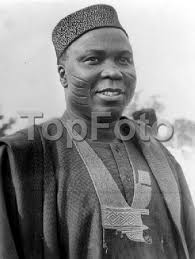
In March 1953, a member of Action Group (AG) in the House of Representatives, Chief Anthony Enahoro, moved a motion, requesting that Nigeria should be granted self government in 1956. Continue reading The Kano riot of 1953
The Kiriji War (1877-1893)
The Kiriji/Ekiti parapo war was a sixteen- year conflict that broke out mainly between Ibadan and the combined forces of Ekiti and Ijesha. According to Latisosa, “the kiriji war ended all wars in Yoruba land”. The Kiriji/Ekiti parapo war was inarguably the last and the most protracted war that plagued the Yoruba nation. The war broke out because of the Continue reading The Kiriji War (1877-1893)
Aburi Accord- The Meeting of Two Elephants
The Aburi Accord (agreement) was reached in 1967 in Aburi, Ghana, by the Supreme Military Council (Federal Government delegates) and the Eastern Region delegates led by Colonel Chukwuemeka Odumegwu Ojukwu, leader of the Eastern Region. The meeting took place between Continue reading Aburi Accord- The Meeting of Two Elephants
The Republic of Biafra's National Anthem
Title: Land Of The Rising Sun.
Origin of the tune: adopted from Sibelius’ “Finlandia”.
Written by: Nnamdi Azikiwe.
LAND THE RISING SUN
Land of the rising sun, we love and cherish,
Beloved homeland of our brave heroes;
We must defend our lives or we shall perish,
We shall protect our hearts from all our foes;
But if the price is death for all we hold dear, Continue reading The Republic of Biafra's National Anthem
The Republic of Biafra’s National Anthem
Title: Land Of The Rising Sun.
Origin of the tune: adopted from Sibelius’ “Finlandia”.
Written by: Nnamdi Azikiwe.
LAND THE RISING SUN
Land of the rising sun, we love and cherish,
Beloved homeland of our brave heroes;
We must defend our lives or we shall perish,
We shall protect our hearts from all our foes;
But if the price is death for all we hold dear, Continue reading The Republic of Biafra’s National Anthem
